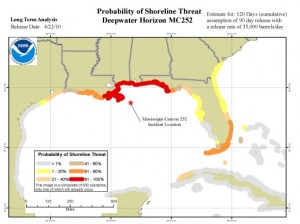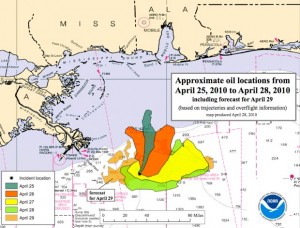The U.S. Travel Association reports that as many as 400,000 travel industry jobs could be lost as a consequence of the oil spill in the Gulf Coast. The total potential cost of the spill to the Gulf Coast tourism industry is estimated at $22.7 billion with most of those losses, as much as $18 billion, likely to occur in Florida. “Travel is a perception business and the impact of disasters like the BP oil spill on the industry is actually predictable,” said Roger Dow, president and CEO of the U.S. Travel Association in a press release. “We know from this research that the oil spill will have long-term effects on businesses and jobs in the Gulf Coast region unless we counteract the usual course of events with an unprecedented response.” The U.S. Travel Association is calling for a $500 million marketing campaign to encourage tourists to return to the Gulf.
Although I oppose spending federal government money to market and promote any industry, I do agree that it makes sense for the U.S. Commerce Department to create travel-related trade missions to encourage international tourists to visit the Gulf. That could certainly be done at low cost. The risk of advocating for tax credits to promote Gulf Coast tourism is that the effort could take tourist business from other parts of the U.S., thereby undermining broad public support for Gulf Coast rebuilding. The high unemployment rate hurts the tourist industry everywhere; unfortunately, the oil spill exacerbates this weakness for the Gulf of Mexico.


